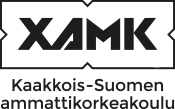Basic engineering physics and chemistry (5 cr)
Code: MT00AA55-3008
General information
Enrollment
02.01.2019 - 14.01.2019
Timing
07.01.2019 - 30.04.2019
Number of ECTS credits allocated
5 op
Mode of delivery
Contact teaching
Campus
Mikkeli Campus
Teaching languages
- Finnish
Seats
20 - 40
Degree programmes
- Degree Programme in Environmental Technology
Teachers
- Natalia Pääjärvi
- Miia Vilve
Groups
-
YTMI18SM
Objective
You are able to systematically use the concepts of mechanics to solve physical and technical problems both theoretically and experimentally.
You master the basic concepts and calculations of chemistry and are able to apply your skills to your professional studies and requirements of working life.
Content
What are the key phenomena, quantities, units, definitions and laws of nature in mechanics? How can you use them to solve problems related to physics and technical engineering? How can you measure physical quantities, study the laws of nature and report the measurements?
What are the basic chemical quantities, units, definitions and natural laws? How is matter constructed? What happens when a chemical reaction occurs? What is the difference between inorganic and organic compounds? How are the chemical compounds divided into groups and how are they named? What are the properties of chemical substances?
Materials
On Moodle platform
Teaching methods
Scheduled track:
You will attend teaching and guidance sessions as specified in the weekly schedule.
Your study routine is determined by the scheduled group sessions and by the self-study assignments.
Independent track:
You can speed up your studies by, for example, choosing independent modes of completing assignments, e.g. online, or by selecting courses from the schedule of another group.
Independent learning assignments require more self-study of the subject field compared with the learning route that is based on a working week.
Completion alternatives
You can speed up your studies by, for example, choosing independent modes of completing assignments, e.g. online, or by selecting courses from the schedule of another group.
Independent learning assignments require more self-study of the subject field compared with the learning route that is based on a working week.
Student workload
The whole course is 135 h, of which about half is Physics. 20 hours are worked in guided labs. Lectures and exams take about 30 hours. Homeworks, exam preparations and report writing takes the rest of the time.
Chemistry part is about 20 hours of lectures and exam.
Evaluation scale
1-5
Assessment methods and criteria
Participating to the course work, homework assignments and hands on excercises on campus.
